
Nuremberg: A Timeless Blend of History and Modern Charm
Nuremberg, a jewel in the heart of Bavaria, invites you to step back in time while enjoying the comforts of modernity. This city has an enchanting mix of medieval architecture, vibrant culture, and historical significance. Stroll through the old town and you’ll encounter the majestic Kaiserburg Castle standing proudly on a hill. Visit the Albrecht Dürer House to see where the famous artist lived and worked. Nuremberg is also known for its poignant history. The Documentation Center Nazi Party Rally Grounds offers a deep look into the events that shaped the 20th century. For a lighter note, the Toy Museum is a delightful stop for families and toy enthusiasts alike. Food lovers will be delighted by the local cuisine. Don’t miss out on trying the famous Nuremberg sausages, best enjoyed with a side of sauerkraut and a pretzel. The Christkindlesmarkt, held during the Advent season, is one of the oldest and most famous Christmas markets in the world, offering a festive atmosphere with traditional crafts and delicious treats. Whether you are exploring its rich past or enjoying its present-day vibrancy, Nuremberg offers a unique and unforgettable experience for every traveler.
Local tips in Nuremberg
- Purchase a Nuremberg Card for free entry to many attractions and free public transport for 2 days.
- Visit the Christkindlesmarkt during the Advent season for a magical holiday experience.
- Try the famous Nuremberg sausages at one of the local bratwurst stands or restaurants.
- Take a guided tour of the Kaiserburg Castle for in-depth historical insights.
- Explore the old town on foot to fully appreciate its medieval architecture and charm.
Neighbourhoods in Nuremberg
Nuremberg: A Timeless Blend of History and Modern Charm
Nuremberg, a jewel in the heart of Bavaria, invites you to step back in time while enjoying the comforts of modernity. This city has an enchanting mix of medieval architecture, vibrant culture, and historical significance. Stroll through the old town and you’ll encounter the majestic Kaiserburg Castle standing proudly on a hill. Visit the Albrecht Dürer House to see where the famous artist lived and worked. Nuremberg is also known for its poignant history. The Documentation Center Nazi Party Rally Grounds offers a deep look into the events that shaped the 20th century. For a lighter note, the Toy Museum is a delightful stop for families and toy enthusiasts alike. Food lovers will be delighted by the local cuisine. Don’t miss out on trying the famous Nuremberg sausages, best enjoyed with a side of sauerkraut and a pretzel. The Christkindlesmarkt, held during the Advent season, is one of the oldest and most famous Christmas markets in the world, offering a festive atmosphere with traditional crafts and delicious treats. Whether you are exploring its rich past or enjoying its present-day vibrancy, Nuremberg offers a unique and unforgettable experience for every traveler.
When is the best time to go to Nuremberg?
Iconic landmarks you can’t miss
Imperial Castle of Nuremberg
Explore the rich history and stunning architecture of Nuremberg's Imperial Castle, a must-visit landmark showcasing Germany's medieval heritage.
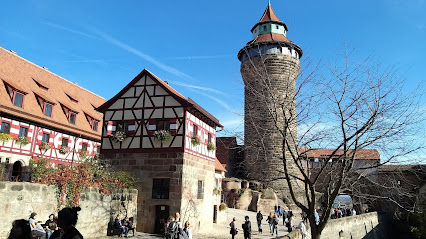
Documentation Center Nazi Party Rally Grounds
Discover the profound history at the Documentation Center Nazi Party Rally Grounds in Nuremberg, where past and present converge for a deeper understanding.
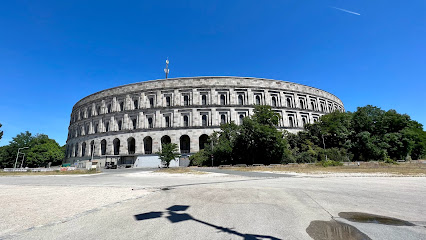
Schöner Brunnen
Explore Schöner Brunnen, a historic fountain in Nuremberg's Hauptmarkt, where beauty meets rich cultural heritage in a vibrant market setting.
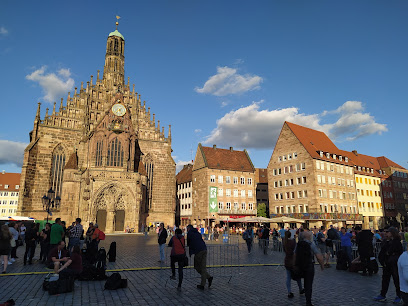
German Railway Museum Nuremberg
Explore Germany's railway heritage at the German Railway Museum in Nuremberg, where history and innovation come to life.
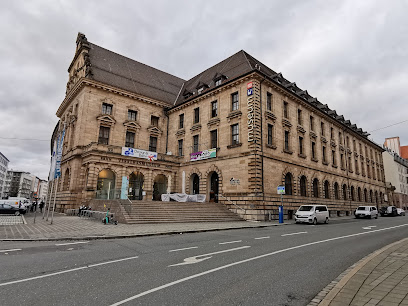
St. Lawrence Church
Explore the breathtaking Gothic architecture of St. Lawrence Church in Nuremberg, a historical landmark with stunning stained glass windows and serene ambiance.

Nürnberg Zoo
Discover the diverse world of animals at Nürnberger Zoo, where education meets adventure in a stunning natural environment.
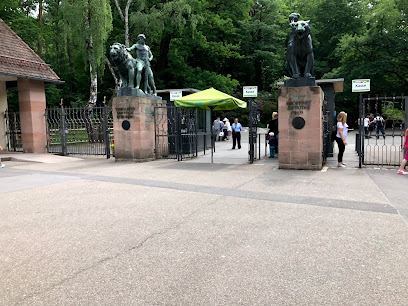
Handwerkerhof Nuremberg
Experience the enchanting artisan village of Handwerkerhof Nuremberg, where traditional craftsmanship meets delightful shopping and rich history.
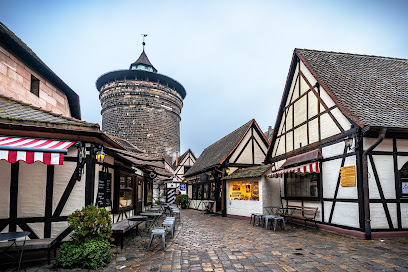
Kongresshalle
Discover Kongresshalle in Nuremberg: a powerful space of remembrance and a reflection on history's impact on our present.
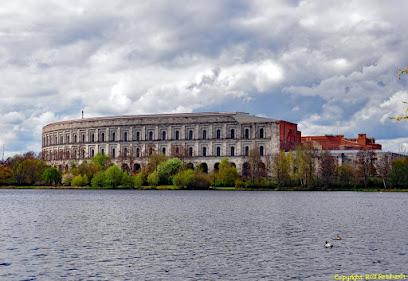
Germanisches Nationalmuseum
Discover the essence of German culture at the Germanisches Nationalmuseum, where history, art, and tradition unite in Nuremberg.
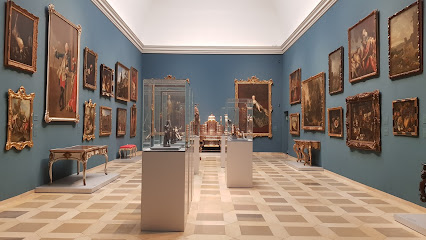
Memorium Nuremberg Trials
Explore the profound legacy of the Nuremberg Trials at the Memorium, where history and justice converge in a powerful, immersive experience.
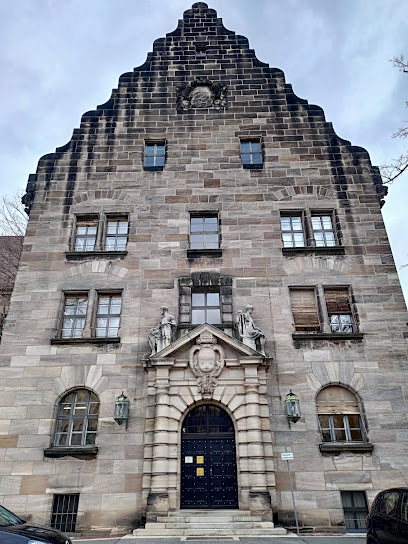
Toy Museum
Explore the Toy Museum in Nuremberg for a nostalgic journey through the world of childhood toys and playful history.
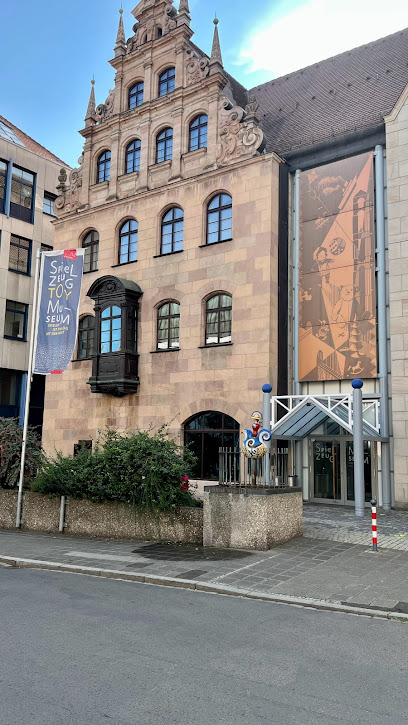
Luitpoldhain
Discover the beauty and tranquility of Luitpoldhain, Nuremberg's urban park filled with lush greenery, historical monuments, and cultural events.
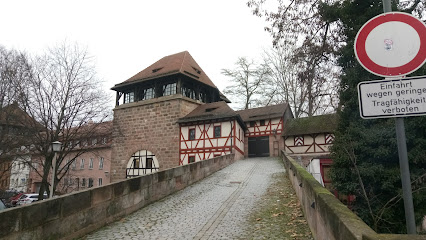
St. Sebald Church - Sebalduskirche Nürnberg
Experience the historic and architectural magnificence of St. Sebald Church, a key cultural gem in the heart of Nuremberg, Germany.

Ehekarussell
Discover the enchanting Ehekarussell in Nuremberg, a stunning fountain adorned with intricate sculptures celebrating love and local artistry.
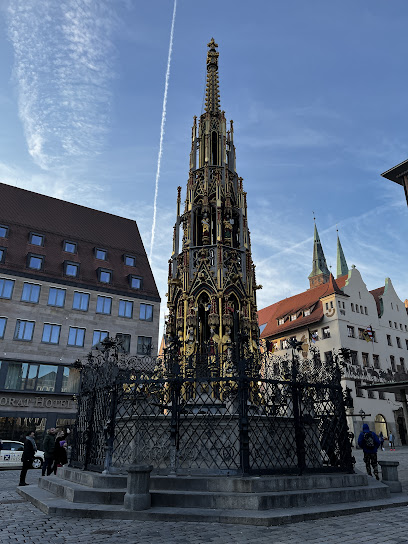
Albrecht Dürer's House
Explore Albrecht Dürer's House in Nuremberg, a historic gem showcasing the life and artistry of one of the Renaissance's greatest masters.

Unmissable attractions to see
Imperial Castle of Nuremberg
Explore the rich history and stunning architecture of the Imperial Castle of Nuremberg, a must-visit landmark in Germany's picturesque city.
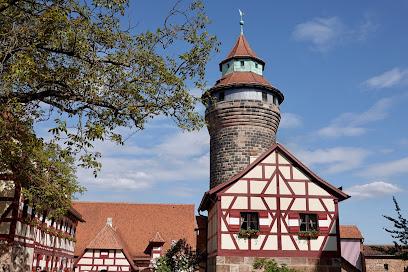
PLAYMOBIL -Fun Park
Experience the joy of childhood at PLAYMOBIL Fun Park in Zirndorf, Germany - a vibrant theme park filled with adventure and imagination for the whole family.
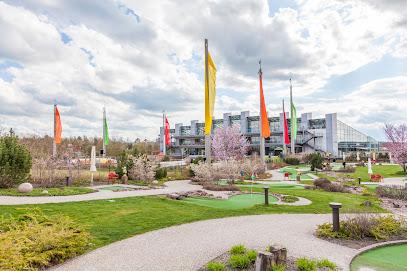
Documentation Center Nazi Party Rally Grounds
Delve into the profound history at the Documentation Center Nazi Party Rally Grounds in Nuremberg, a must-visit for understanding the Nazi era's impact.
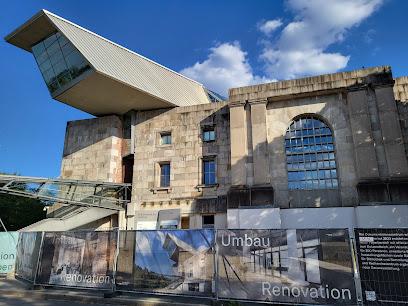
Cinecittà Nürnberg
Explore Cinecittà Nürnberg, the ultimate destination for movie lovers, dining, and nightlife in the heart of Nuremberg, Germany.
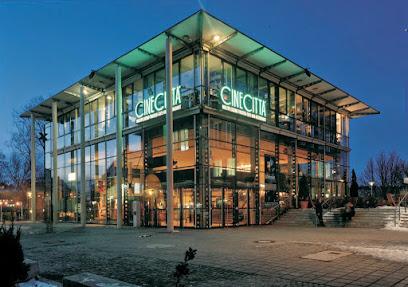
NürnbergMesse GmbH
Discover NürnbergMesse, Germany's leading exhibition center, where innovation, culture, and business converge in a vibrant atmosphere.
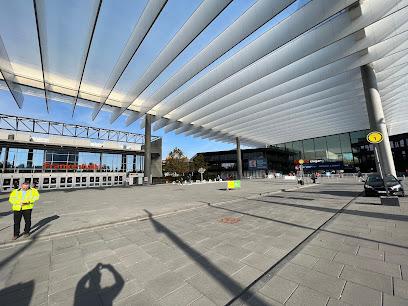
Kristall Palm Beach
Experience the ultimate blend of fun and relaxation at Kristall Palm Beach, a premier water park and health spa in Stein, Germany.
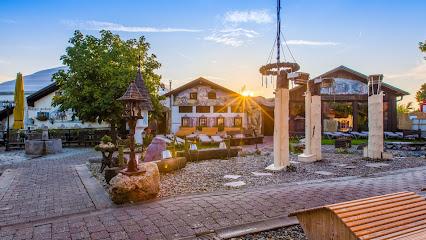
Schöner Brunnen
Discover the majestic Schönner Brunnen in Nuremberg's Hauptmarkt, a stunning medieval fountain and historical landmark perfect for every tourist's itinerary.
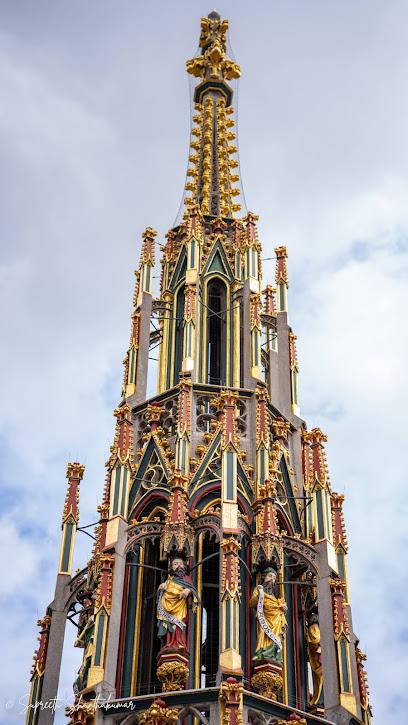
German Railway Museum Nuremberg
Explore the German Railway Museum in Nuremberg, where the history of rail transport comes to life through captivating exhibits and historical locomotives.
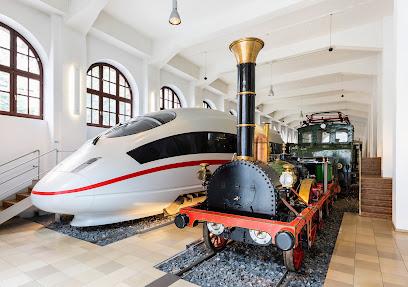
Nürnberg Zoo
Explore the captivating wildlife of Nürnberg Zoo, a remarkable animal park dedicated to conservation and education in the heart of Nuremberg.
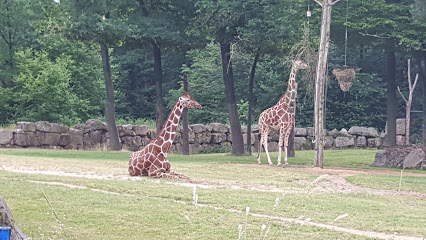
Handwerkerhof Nuremberg
Explore Handwerkerhof Nuremberg: A charming artisan village showcasing traditional crafts, local cuisine, and vibrant culture in the heart of the city.
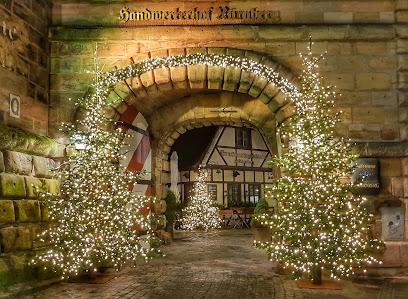
Germanisches Nationalmuseum
Explore the rich history and cultural artifacts at the Germanisches Nationalmuseum, the largest museum of its kind in Germany, located in Nuremberg.
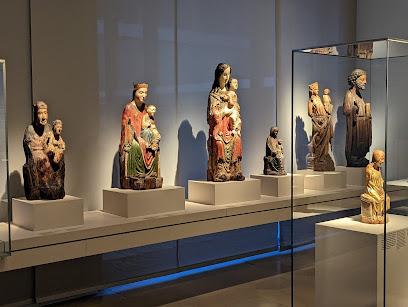
Kongresshalle
Explore Kongresshalle in Nuremberg: a striking monument of history and remembrance amid stunning architecture.
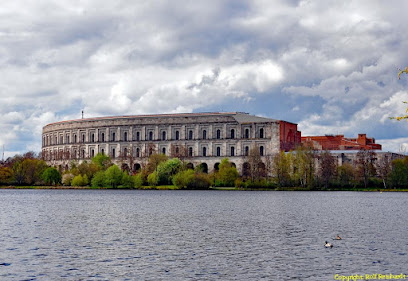
Stadt Park
Explore the enchanting Stadt Park in Nuremberg, a lush space filled with gardens, fountains, and family-friendly activities for an unforgettable day outdoors.
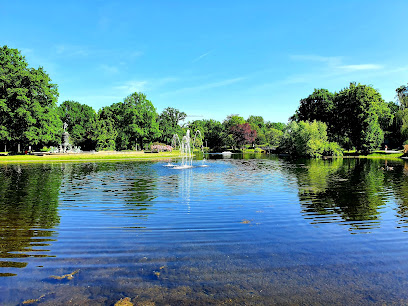
Memorium Nuremberg Trials
Discover the powerful legacy of the Nuremberg Trials at the Memorium, a historical landmark that shapes our understanding of justice and humanity.
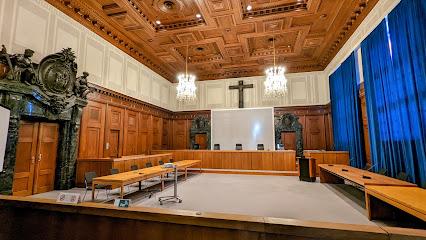
Toy Museum
Explore Nuremberg's Toy Museum, a captivating journey through the history of toys that delights both children and adults alike.
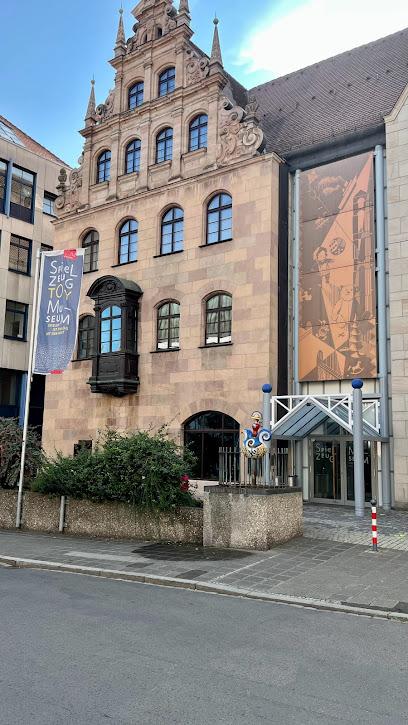
Essential places to dine
Bratwurst Röslein
Discover authentic German flavors at Bratwurst Röslein in Nuremberg - a must-visit destination for culinary enthusiasts.
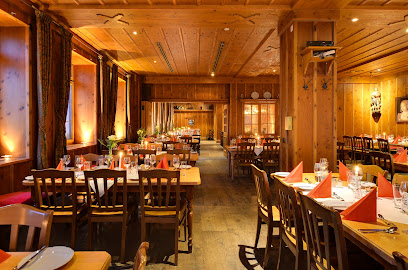
Bratwursthäusle bei St. Sebald
Experience the best of traditional German cuisine at Bratwursthäusle bei St. Sebald in Nuremberg, where every meal is a celebration of local flavors.
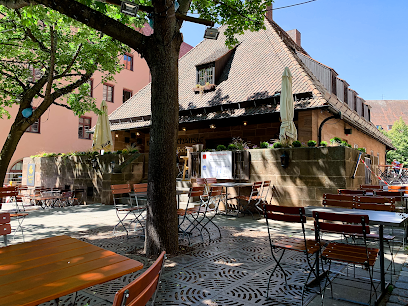
ALEX Nuremberg
Discover ALEX Nuremberg: Your go-to destination for diverse culinary delights in the heart of the city.
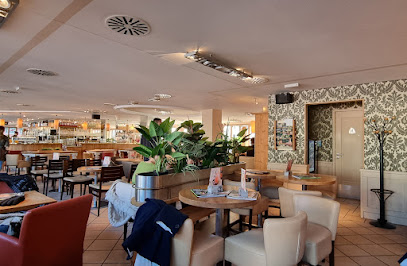
Wirtshaus Hütt'n
Experience authentic Franconian and Bavarian cuisine at Wirtshaus Hütt'n in Nuremberg—where tradition meets taste in a warm atmosphere.
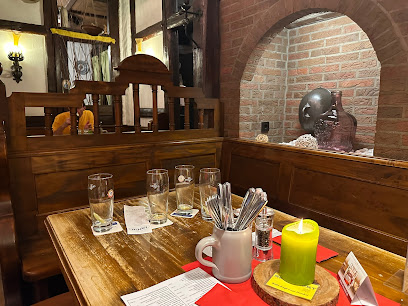
Block House Nürnberg
Experience top-notch steaks and delightful German cuisine at Block House Nürnberg - a culinary gem in the heart of Nuremberg.
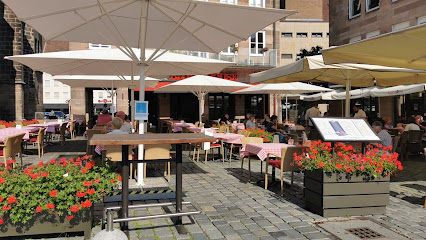
Alte Küch'n & Im Keller
Experience authentic Franconian cuisine at Alte Küch'n & Im Keller in Nuremberg - where tradition meets taste.
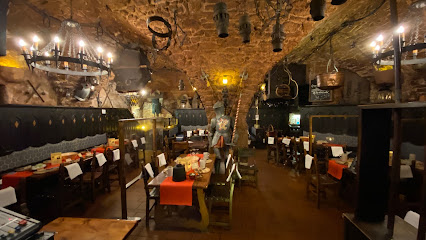
FIVE Diner I Obstmarkt 5
Discover FIVE Diner: A vibrant American-style diner in Nuremberg offering delicious breakfasts and cocktails in a lively atmosphere.
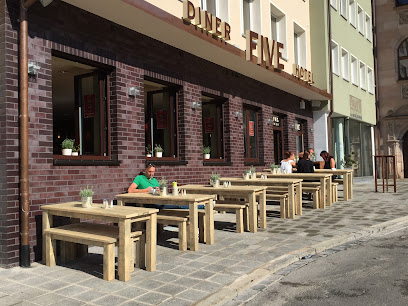
Enchilada Nürnberg
Experience authentic Mexican cuisine in the heart of Nuremberg at Enchilada Nürnberg - where every bite takes you on a flavorful journey.
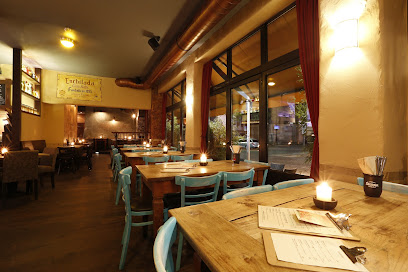
Padelle d'Italia Nürnberg
Savor authentic Italian flavors at Padelle d'Italia Nürnberg - where every dish tells a story of tradition and passion.
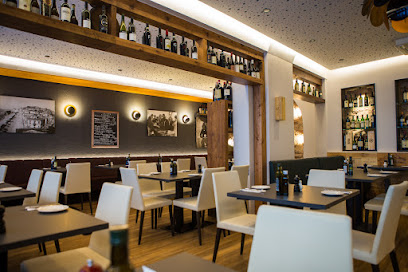
KoKoNo Nürnberg Luitpoldstraße
Experience the vibrant flavors of Pan Asian cuisine at KoKoNo Nürnberg – where every dish tells a story.
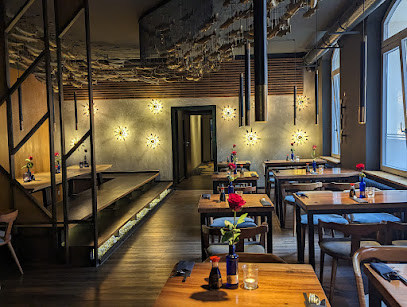
dasPaul Restaurant & Hotel
Discover culinary delights and cozy accommodations at dasPaul Restaurant & Hotel in the heart of Nuremberg.
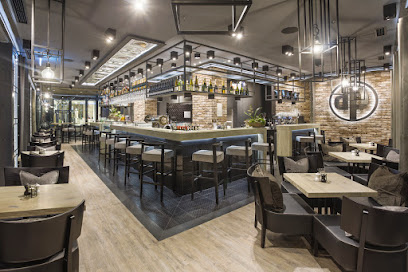
Restauration Kopernikus - Restaurant & Biergarten
Discover Restauration Kopernikus: A charming beer garden offering authentic Franconian cuisine amidst scenic riverside views in Nuremberg.
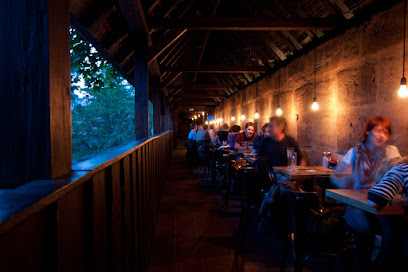
KonTiki
Savor exotic flavors at KonTiki in Nuremberg—a delightful fusion of Pacific Rim cuisine and vibrant cocktails in an enchanting atmosphere.
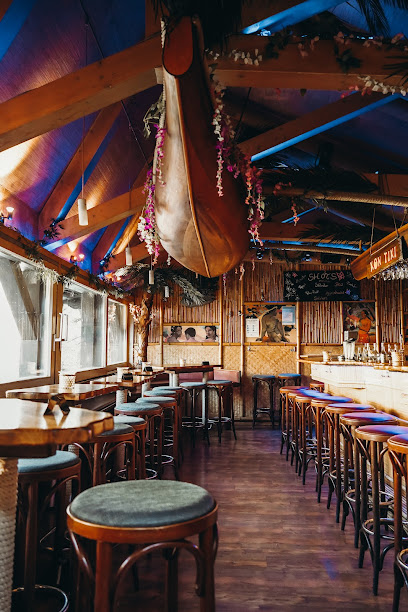
Goldenes Posthorn
Discover authentic Franconian cuisine and exquisite wines at Goldenes Posthorn in Nuremberg's historic heart.
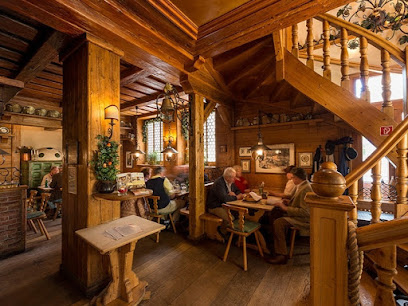
Hexenhäusle
Discover the enchanting charm of Hexenhäusle in Nuremberg - where traditional German flavors meet a delightful beer garden atmosphere.
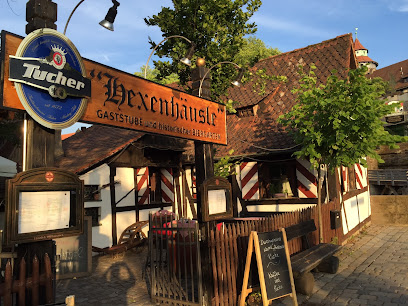
Markets, malls and hidden boutiques
Ultracomix GmbH
Explore the rich world of books and comics at Ultracomix GmbH in Nuremberg, where every visit promises exciting new finds and local culture.
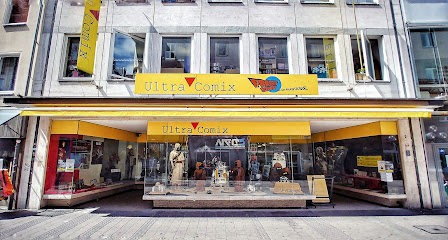
GALERIA Nürnberg an der Lorenzkirche
Explore the vibrant GALERIA Nürnberg for an unforgettable shopping experience in the heart of Nuremberg, featuring top brands and local treasures.
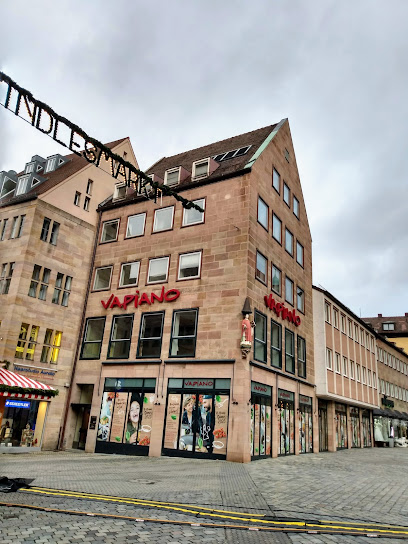
Breuninger Nuremberg
Discover luxury shopping at Breuninger Nuremberg, offering a wide range of men's and women's clothing, shoes, and accessories in a stylish setting.
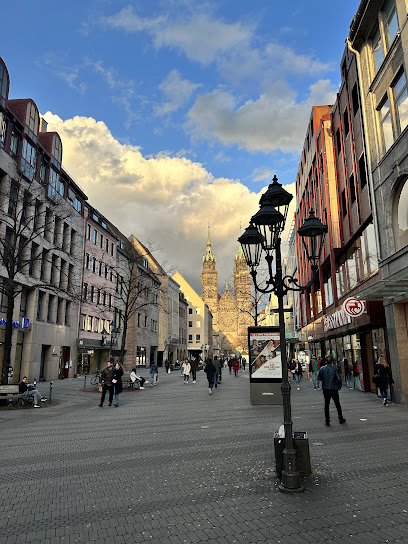
Brooklyn
Explore Brooklyn in Nuremberg, your ultimate destination for stylish clothing and shoes that reflect the latest trends and local culture.
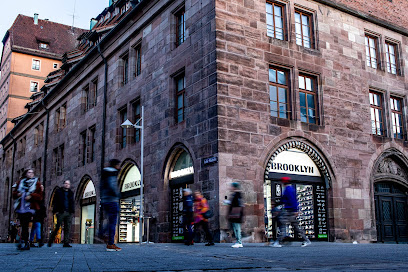
Elbenwald
Discover Elbenwald in Nuremberg, where fantasy-themed gifts, clothing, and toys await every visitor in a magical shopping experience.
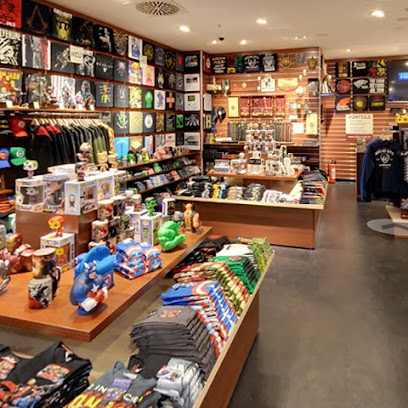
American Store & British Empire
Discover a blend of American and British fashion at the American Store & British Empire in Nuremberg, where unique clothing meets cultural charm.
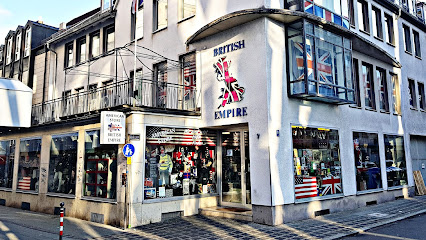
NEW YORKER
Explore trendy clothing and accessories for all ages at NEW YORKER - Nuremberg's fashionable shopping destination.
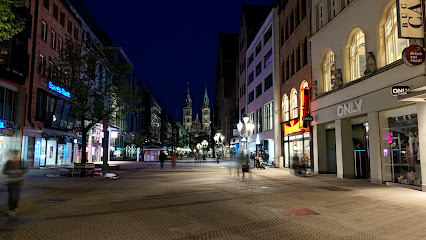
Nespresso Boutique
Experience the elegance of specialty coffee at the Nespresso Boutique in Nuremberg, where culture meets exceptional taste.
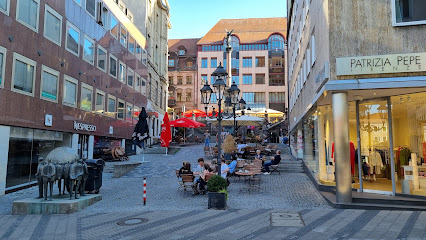
Urban Outfitters
Discover the vibrant blend of fashion and unique gifts at Urban Outfitters in Nuremberg, where style meets local creativity.
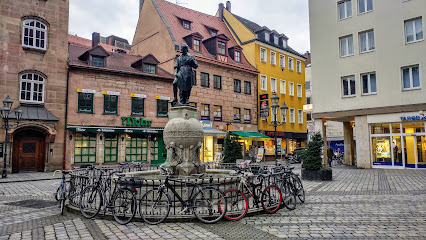
LUSH Cosmetics Nürnberg
Explore LUSH Cosmetics in Nuremberg for an extraordinary selection of ethical beauty and gift products that delight the senses.
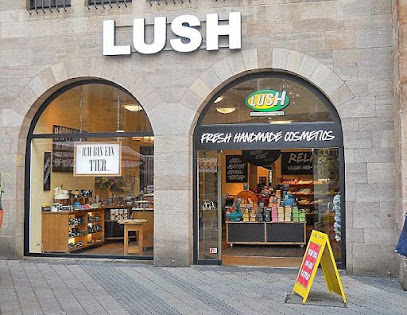
Vinty'S second-hand clothes Nuremberg
Explore Vinty's Second-Hand Clothes in Nuremberg for unique vintage finds and sustainable fashion treasures.
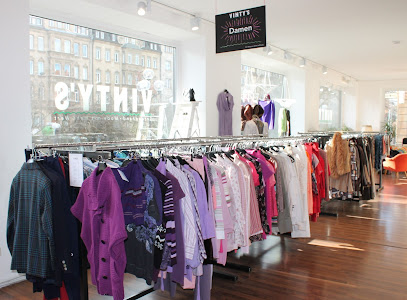
Lindt Boutique Nürnberg
Discover the exquisite world of Swiss chocolates at Lindt Boutique Nürnberg, where every bite is a celebration of flavor and craftsmanship.
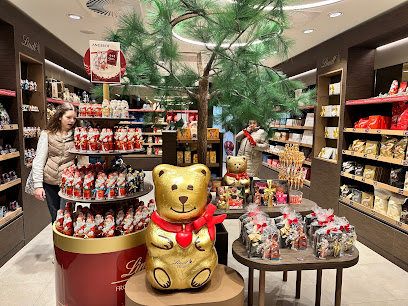
vintagesafari | second hand, handmade accessoires & local art
Discover unique vintage clothing, handmade accessories, and local art at Vintage Safari, Nuremberg's charming second-hand treasure trove.
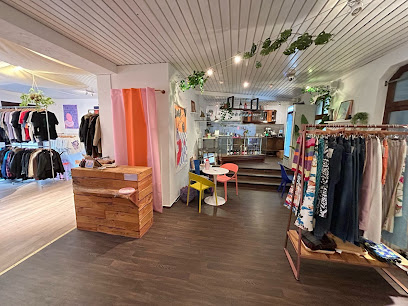
Käthe Wohlfahrt - Nürnberg
Explore the magical Käthe Wohlfahrt in Nürnberg, your year-round destination for authentic Christmas decorations and gifts.
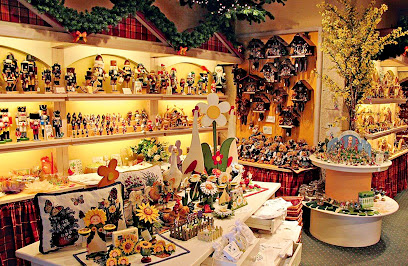
glore Nuremberg
Explore sustainable fashion at Glore Nuremberg, where contemporary style meets ethical choices in a vibrant shopping experience.
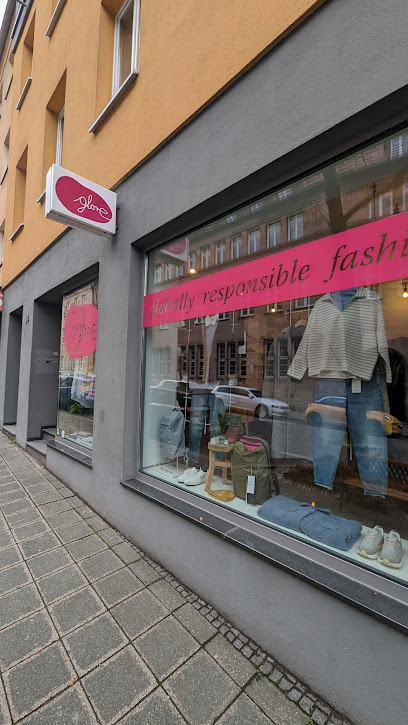
Essential bars & hidden hideouts
Finnegan's Harp Irish Pub
Discover the lively atmosphere of Finnegan's Harp Irish Pub in Nuremberg, where authentic cuisine meets a vibrant social scene.
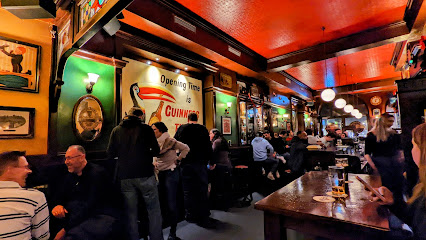
Rockcafe Brown Sugar GmbH
Discover the lively Rockcafe Brown Sugar in Nuremberg, where rock music and a vibrant atmosphere come together for an unforgettable night out.
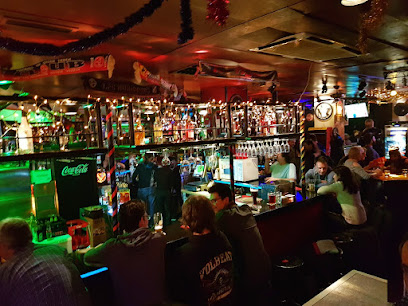
The King's Arms - Nürnberg
Experience the lively atmosphere at The King's Arms in Nürnberg, where traditional German cuisine meets a vibrant pub culture.
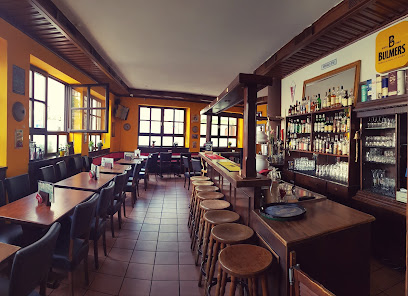
Mata Hari Bar
Experience Nuremberg's nightlife at Mata Hari Bar, where cocktails, music, and a vibrant atmosphere come together for unforgettable nights.
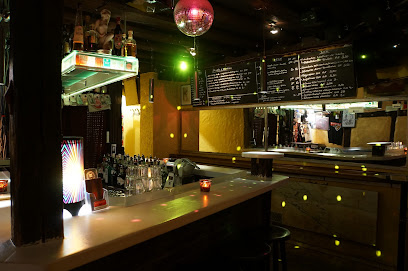
Die Rote Bar - Nürnberg
Experience the vibrant nightlife of Nuremberg at Die Rote Bar, where eclectic drinks and lively ambiance create unforgettable evenings.
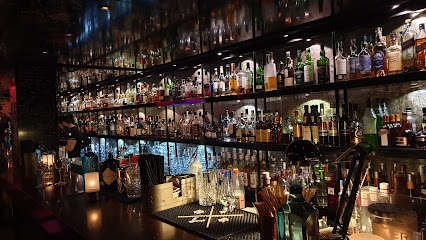
The Flower of Hawaii - Nürnberg
Discover The Flower of Hawaii in Nuremberg – a tropical bar experience with vibrant cocktails and bistro delights in a cozy lounge setting.
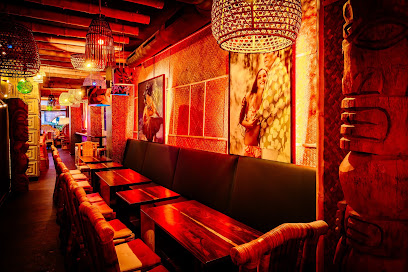
Ludwigs Bar & Cafe - Nürnberg
Discover the lively atmosphere of Ludwigs Bar & Cafe in Nürnberg - a perfect blend of local culture, great drinks, and delicious bites.
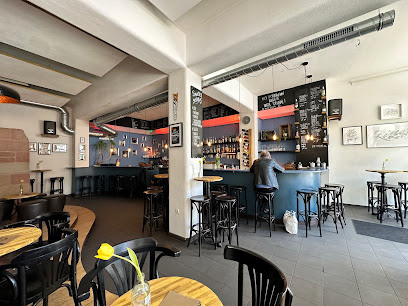
Gin & Julep Bar
Discover the vibrant cocktail culture at Gin & Julep Bar, where expert mixology meets a chic atmosphere in Nuremberg.
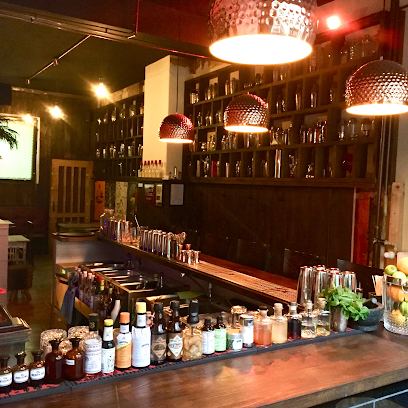
Harlėm Bar - Nürnberg
Discover the lively nightlife at Harlėm Bar in Nürnberg, where eclectic drinks and vibrant music create an unforgettable experience.
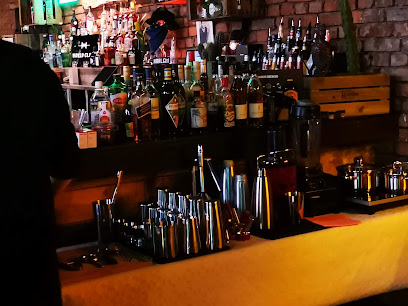
Saigon Bar - Nürnberg
Discover Saigon Bar in Nürnberg – a lively gathering place for cocktails, camaraderie, and unforgettable nightlife experiences.
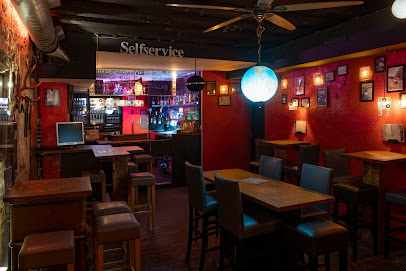
Die UnauffindBar - Nürnberg
Discover Die UnauffindBar in Nuremberg, where innovative cocktails and a cozy atmosphere create the perfect nightlife experience.
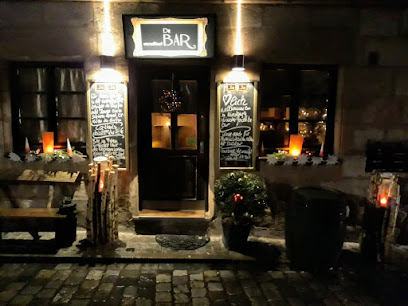
Vintage Bar - Nürnberg
Discover Nürnberg's nightlife at Vintage Bar, where eclectic decor meets expertly crafted cocktails in a vibrant atmosphere.
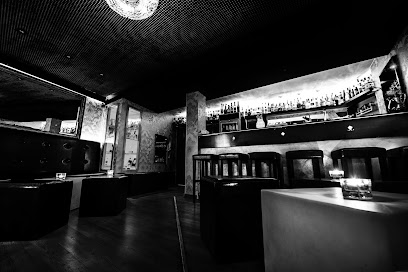
Bar Downtown Nürnberg
Enjoy a lively bar experience in Nuremberg with great drinks, live music, and a vibrant atmosphere at Bar Downtown Nürnberg.
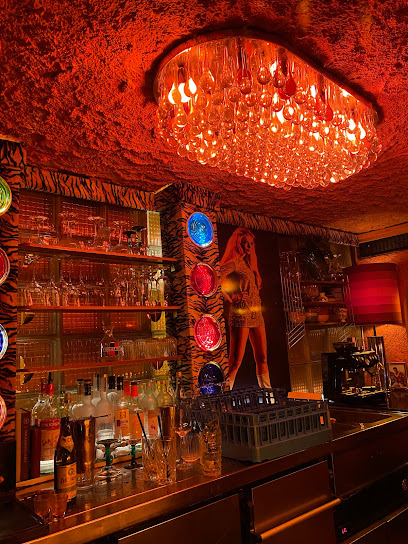
Bar Tante Betty - Nürnberg
Discover the heart of Nuremberg's nightlife at Bar Tante Betty, a live music venue brimming with energy and fantastic performances.
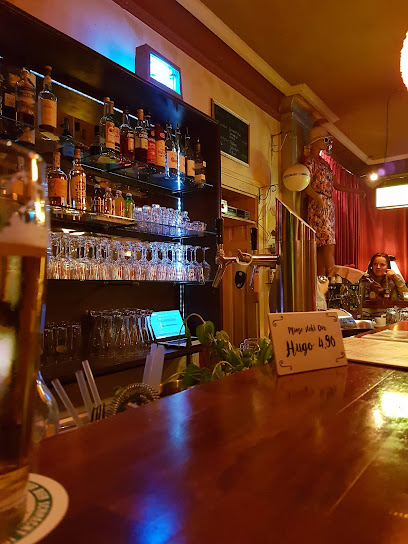
Travel experiences inspired by this city
Explore more travel diariesLocal Phrases
-
- HelloHallo
[hah-loh] - GoodbyeAuf Wiedersehen
[owf vee-der-zay-en] - YesJa
[yah] - NoNein
[nine] - Please/You're welcomeBitte
[bi-teh] - Thank youDanke
[dahn-keh] - Excuse me/SorryEntschuldigung
[ent-shool-dee-goong] - How are you?Wie geht es dir?
[vee gayt es deer] - Fine. And you?Gut. Und dir?
[goot oont deer] - Do you speak English?Sprechen Sie Englisch?
[shpre-khen zee eng-leesh] - I don't understandIch verstehe nicht
[ikh fer-shteh-eh nikht]
- HelloHallo
-
- I'd like to see the menu, pleaseIch möchte bitte die Speisekarte sehen
[ikh merkh-teh bi-teh dee shpy-zeh-kahr-teh zay-en] - I don't eat meatIch esse kein Fleisch
[ikh es-seh kine flysh] - Cheers!Prost!
[prohst] - I would like to pay, pleaseIch möchte bitte zahlen
[ikh merkh-teh bi-teh tsah-len]
- I'd like to see the menu, pleaseIch möchte bitte die Speisekarte sehen
-
- Help!Hilfe!
[hil-feh] - Go away!Geh weg!
[geh vehg] - Call the Police!Rufen Sie die Polizei!
[roo-fen zee dee poh-lee-tsy] - Call a doctor!Rufen Sie einen Arzt!
[roo-fen zee ai-nen artsht] - I'm lostIch habe mich verirrt
[ikh hah-beh meesh feh-rirt] - I'm illIch bin krank
[ikh been krunk]
- Help!Hilfe!
-
- I'd like to buy...Ich möchte ... kaufen
[ikh merkh-teh ... kow-fen] - I'm just lookingIch schaue nur
[ikh show-eh noor] - How much is it?Wie viel kostet es?
[vee feel koh-stet es] - That's too expensiveDas ist zu teuer
[dahs ist tsoy toy-er] - Can you lower the price?Können Sie den Preis senken?
[ker-nen zee den prys zeng-ken]
- I'd like to buy...Ich möchte ... kaufen
-
- What time is it?Wie spät ist es?
[vee shpeht ist es] - It's one o'clockEs ist ein Uhr
[es ist iyn oor] - Half past (10)Halb zehn
[hahlp tsehn] - MorningMorgen
[mor-gen] - AfternoonNachmittag
[nahk-mit-tahk] - EveningAbend
[ah-bent] - YesterdayGestern
[gehs-tern] - TodayHeute
[hoi-teh] - TomorrowMorgen
[mor-gen] - 1Eins
[eyns] - 2Zwei
[tsvai] - 3Drei
[dry] - 4Vier
[feer] - 5Fünf
[fuhnf] - 6Sechs
[zeks] - 7Sieben
[zee-ben] - 8Acht
[ahkt] - 9Neun
[noyn] - 10Zehn
[tsehn]
- What time is it?Wie spät ist es?
-
- Where's a/the...?Wo ist ein/der...?
[vo ist iyn/dehr] - What's the address?Was ist die Adresse?
[vahs ist dee ah-dreh-seh] - Can you show me (on the map)?Können Sie mir das zeigen (auf der Karte)?
[ker-nen zee meer dahs tsee-gen (owf dehr kahr-teh)] - When's the next (bus)?Wann kommt der nächste (Bus)?
[vahn kohmt dehr nehk-steh (boos)] - A ticket (to ....)Eine Fahrkarte (nach ....)
[ai-ne fahr-kahr-teh (nahkh ....)]
- Where's a/the...?Wo ist ein/der...?
History of Nuremberg
-
Nuremberg, first documented in 1050, quickly grew into a significant medieval city due to its strategic location along key trade routes. The city’s landmark, Nuremberg Castle, began construction around this time, symbolizing its importance in the Holy Roman Empire.
-
During the 14th century, Nuremberg hosted several Imperial Diets, the deliberative assemblies of the Holy Roman Empire. The city gained additional prestige in 1356 when Emperor Charles IV issued the Golden Bull, which mandated that every newly elected German king had to hold his first diet in Nuremberg.
-
In the 15th and 16th centuries, Nuremberg became a hub of Renaissance humanism, science, and art. Renowned figures such as Albrecht Dürer, the famous painter and printmaker, and the astronomer Johannes Regiomontanus called the city home, contributing to its cultural and intellectual vibrancy.
-
In the aftermath of World War II, Nuremberg was chosen as the site for the military tribunals known as the Nuremberg Trials. These historic trials, held from 1945 to 1946, prosecuted prominent leaders of Nazi Germany for war crimes and established important precedents in international law.
-
After suffering extensive damage during World War II, Nuremberg underwent significant reconstruction efforts. The city today blends its medieval charm with modern amenities, featuring restored historical buildings alongside contemporary infrastructure, making it a vibrant cultural and economic center in Bavaria.
-
The Nuremberg Christkindlesmarkt, one of the oldest and most famous Christmas markets in Germany, dates back to the early 17th century. Held annually in the city's main market square, it attracts visitors from around the world with its traditional crafts, festive foods, and holiday spirit.
Nuremberg Essentials
-
Nuremberg is well-connected by various modes of transportation. The nearest international airport is Nuremberg Airport (NUE), located just 5 kilometers north of the city center. You can reach the city center from the airport by taking the U2 subway line, which takes around 12 minutes. Alternatively, Nuremberg is accessible by train, with the Nuremberg Hauptbahnhof (main train station) offering connections to major cities in Germany and Europe. For those traveling by car, Nuremberg is located at the junction of several major highways, including the A3, A6, and A9.
-
Nuremberg has an efficient public transportation system that includes buses, trams, and the U-Bahn (subway). The Verkehrsverbund Großraum Nürnberg (VGN) operates these services, and you can purchase single tickets, day passes, or multi-day passes. Taxis are also readily available, and ride-sharing services like Uber operate in the city. For a more eco-friendly option, consider renting a bike; Nuremberg is bike-friendly with numerous bike lanes and rental stations. Walking is another great way to explore the city, especially in the pedestrian-friendly Altstadt (Old Town).
-
The official currency in Germany is the Euro (EUR). Credit and debit cards are widely accepted in hotels, restaurants, and shops, but it's advisable to carry some cash, especially for smaller purchases or establishments that may not accept cards. ATMs are widely available throughout Nuremberg, and you can use international cards to withdraw cash. Note that some places may not accept American Express, so having a Visa or MasterCard is preferable.
-
Nuremberg is generally a safe city for tourists, but it's always wise to take standard precautions. Avoid walking alone at night in poorly lit or unfamiliar areas, and be cautious of pickpockets in crowded places like markets and public transportation. Areas such as the Hauptbahnhof and Gostenhof have higher incidences of petty crime, so stay vigilant. Keep your belongings secure and avoid displaying valuable items openly.
-
In case of emergency, dial 112 for immediate assistance from police, fire, or medical services. The main hospital, Klinikum Nürnberg, offers emergency medical care. Pharmacies (Apotheken) are widely available for minor health issues and over-the-counter medications. It's recommended to have travel insurance that covers medical emergencies. For non-urgent issues, the Tourist Information Office can provide assistance and guidance.
-
Fashion: Do dress comfortably but neatly. Germans appreciate a tidy appearance. Avoid overly casual attire like beachwear unless you are at a pool or beach. Religion: Do respect religious customs, especially when visiting churches. Dress modestly and maintain a quiet demeanor. Public Transport: Do validate your ticket before boarding. Don’t forget to give up your seat to elderly passengers or those with disabilities. Greetings: Do greet people with a friendly 'Guten Tag' (Good day) or 'Hallo' (Hello). A firm handshake is customary. Eating & Drinking: Do try local specialties like Nürnberger Bratwurst and Lebkuchen. Don’t leave a tip on the table; instead, hand it directly to the waiter with a polite 'Danke' (Thank you).
-
To experience Nuremberg like a local, visit the weekly markets such as the Hauptmarkt, where you can buy fresh produce and local delicacies. Take a leisurely stroll along the Pegnitz River or through the historic Altstadt. Engage in conversations with locals, who are often friendly and willing to share insights about their city. Don’t miss the Christmas market (Christkindlesmarkt) if you are visiting during the holiday season; it's one of the most famous in Germany. For a unique experience, explore the lesser-known neighborhoods like Gostenhof, which offers a vibrant arts scene and eclectic dining options.
Trending Landmark in Nuremberg
-
Imperial Castle of Nuremberg
-
Documentation Center Nazi Party Rally Grounds
-
Schöner Brunnen
-
German Railway Museum Nuremberg
-
St. Lawrence Church
-
Nürnberg Zoo
-
Handwerkerhof Nuremberg
-
Kongresshalle
-
Germanisches Nationalmuseum
-
Memorium Nuremberg Trials
-
Toy Museum
-
Luitpoldhain
-
St. Sebald Church - Sebalduskirche Nürnberg
-
Ehekarussell
-
Albrecht Dürer's House
Nearby Cities to Nuremberg
-
Things To Do in Rothenburg ob der Tauber
-
Things To Do in Wurzburg
-
Things To Do in Munich
-
Things To Do in Karlovy Vary
-
Things To Do in Stuttgart
-
Things To Do in Plzeň
-
Things To Do in Erfurt
-
Things To Do in Heidelberg
-
Things To Do in Frankfurt
-
Things To Do in Leipzig
-
Things To Do in Salzburg
-
Things To Do in Bregenz
-
Things To Do in Kitzbühel
-
Things To Do in Innsbruck
-
Things To Do in Český Krumlov



















